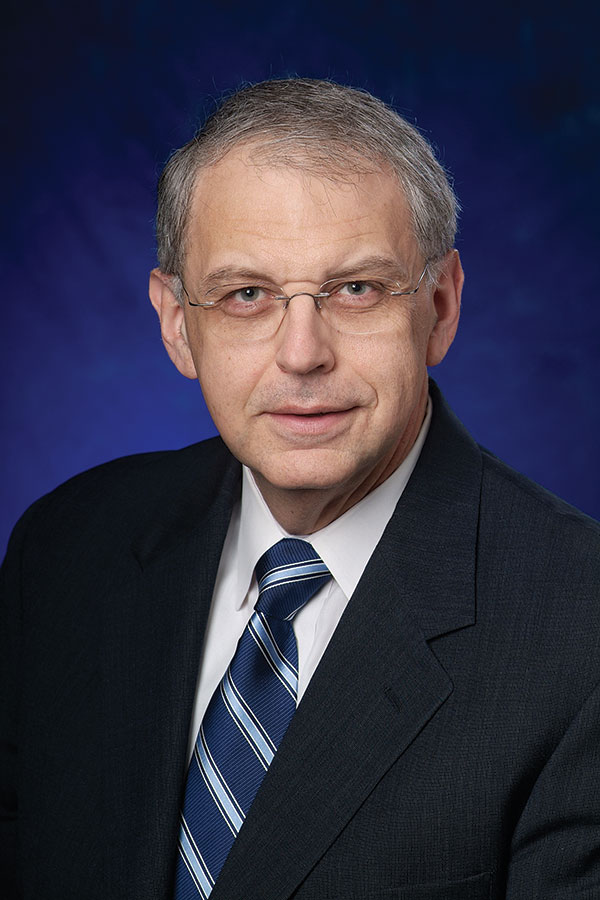Gregory J. Dehmer, MD, MACC Discusses Path to NCDR Leadership
As a medical student, Gregory J. Dehmer, MD, MACC, knew he found his true interest when he took part in an elective rotation in the cardiac catheterization (cath) lab. “I was always interested in the biological sciences,” he says. “At that time, things were nowhere near what they are today in the cath lab, but I had the opportunity to work with some inspiring people.” Fascinated by the physiology of the heart, Dehmer found the cath lab to be a natural fit. “It was the place where I could get into the mechanics of all of it, the recordings and analyzing things at that level.” His interest in interventional cardiology was nurtured by mentors gained during his time as a student in the cath lab and later on as a cardiology fellow at the University of Texas Southwestern.
|
Recently awarded the Master of the ACC designation as part of the ACC.15 Convocation ceremony, Dehmer is currently a professor of medicine at Texas A&M Health Science Center College of Medicine, medical director of Cardiovascular Services for the Central Texas Division and chief of the Cardiology Division at Baylor Scott & White Health’s Memorial Hospital.
Hesitant to name only a few mentors, Dehmer says three individuals rise to the top as some of the most influential. Jim Willerson, MD, FACC, who was chief of cardiology at UT Southwestern during Dehmer’s fellowship is one of the first to come to mind. “Jim was very driven. He expected a lot but was always very fair and very generous,” says Dehmer. “What I remember most is that no matter how hard you thought you were working, you could watch him and he was always working harder.”
L. David Hillis, MD, FACC, director of the cath lab at UT Southwestern during Dehmer’s fellowship was another very influential mentor. “It was the learning environment that David provided for cardiology fellows that has really stuck with me throughout my career and I have tried to emulate. He truly made learning fun, interesting and enjoyable. He made you feel like more of a colleague than a student.”
However, Dehmer credits his wife of 38 years, Sue, as one of his most significant and long-term mentors. The two met on his first day of residency, when she was working as a nurse. “She has always been a guiding light for me. A great partner, she has guided me through every career decision and milestone.”
A major influence in the world of cath lab quality improvement, Dehmer got his start with the ACC leading a joint effort between the ACC and the Society for Cardiovascular Angiography and Interventions (SCAI). While the NCDR was just in its infancy, CathKIT offered a set of tools and documents to help improve quality in cath labs. “Though the project was far ahead of its time and never really got any traction, the personal and professional relationships I gained as a result have greatly impacted my career and involvement with the ACC,” he says. “Serving as co-chair alongside current ACC President-Elect Richard A. Chazal, MD, FACC, and working with many other ACC leaders and staff really exposed me to the wonderful work the ACC was doing to further quality.”
This exposure led to Dehmer’s eight-year engagement as an NCDR Management Board member. “The interaction I had and the opportunities to learn from others have really helped shape where I am today,” he says. “I was fortunate to serve on the Management Board at a time when the structure for NCDR leadership was just being formed. It has been very rewarding to see how the NCDR has matured since then.”
Beyond playing a vital role in the development of the NCDR, which he feels is a benchmark for the entire country, Dehmer considers the lasting friendships among the greatest benefits of his time on the Management Board. “Being able to work with some really wonderful, thoughtful people, committed to doing the right thing and improving cardiology is something I will always value.”
Today, Dehmer chairs the NCDR Public Reporting Advisory Group as an emeritus member of the NCDR Management Board. “I’m happy to stay involved,” he says. “There are so many good, young individuals who are involved today. It’s wonderful to see them contribute and gain from it the same way I have in the past.” Dehmer sees public reporting as an important area where the ACC can apply its many strengths and resources to lead the way.
“Public reporting is like fireworks on the Fourth of July,” he says. “It draws a big crowd, some think it is beautiful and wonderful, others are scared by it; but one thing is for sure, if you don’t do it right, you can wind up getting hurt. The public is eager for this information and we should provide it, but we need to help ensure the right data is used. Administrative data has a lot of flaws; it doesn’t have the same depth of meaning as NCDR data. Institutions have to be dedicated to putting in the correct data, but with a documented high percentage accuracy. The CathPCI Registry provides a meaningful platform for public reporting.”
When asked about his goals for the public reporting advisory group, Dehmer says, “We are not the first to do this, but over time we hope to be the most meaningful and most respected vehicle for public reporting in cardiology.”
Clinical Topics: Invasive Cardiovascular Angiography and Intervention, Interventions and Imaging, Angiography, Nuclear Imaging
Keywords: Cardiology Magazine, ACC Publications, Angiography, Biological Science Disciplines, Cardiac Catheterization, Fellowships and Scholarships, Internship and Residency, Leadership, Mentors, Physician Executives, Quality Improvement, Registries
< Back to Listings


